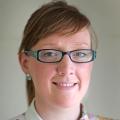
TRIBUTES have been paid to a respected archaeologist, teacher and “true gentleman”.
Ken Fairless, of Cotherstone, Teesdale, was well-known for his contribution to archaeology in the area.
His nephew Kenneth Fairless, said he had a “strong sense of honesty and of right and wrong from an early age, virtues which characterised him to the last”.
The father-of-two completed his National Service in the Army before studying classics at Durham University.
It was there that he became interested in archaeology and later returned to complete his PhD.
In the 1960s he worked as a teacher at Whitley Bay Grammar School before moving taking up a role in the history department at Middleton St George Teacher Training College.
Mr Fairless said his uncle befriended Dennis Coggins at the college and the duo joined forces to “unlock the secrets of Teesdale's unrecorded past”.
Beginning in 1972 the pair, accompanied by an army of their students, conducted a series of annual excavations in the Dale.
With a tiny budget, they investigated native Roman Age sites near High Force, a Bronze Age house at Bracken Rigg, and Viking Age farm as well as others.
After the college closed, Dr Fairless returned to teaching and completed his PhD.
He worked part time as an Inspector of Ancient Monuments for English Heritage for several years and edited the Journal of the Teesdale Record Society – an organization he helped revive.
Friend Jean Hemingway described how Dr Fairless was one of a few people who “brought about the renaissance” of the society.
Alongside Mr Coggins, the pair took up the role as president and vice president in the 1980s and it thrived despite two previous launches in 1934 and 1971.
She said: “He has made a significant contribution to the cultural life of Upper Teesdale.”
As part of his work with The Bowes Museum, Dr Fairless has also been described as a “stalwart supporter” of its archives and library, being a regular volunteer.
The museum’s head of collections, Jane Whittaker, said: “A fund of local knowledge, particularly of archaeology, he was always generous if a visitor had a question and staff really appreciated his willingness to help.
“He loved to chat and he always offered some interesting nugget of knowledge delivered with a sense of humour. He was a true gentleman and he will be remembered with fondness.”
His students also shared their memories of him.
Paul Gilmore said: “There was nothing dry about Ken’s style which was full of enthusiasm and energy, his lively approach served to bring about the same level of enthusiasm from his students.”
Remarking on a dig, he added: “The Teesdale weather was often unkind, but Ken and Dennis never were. There are so many memories, but I think my favourite is of several of us huddled together in a tent at Force Garth and Ken looking through the tent opening and declaring ‘It looks as if its clearing to me’. He was in a minority of one, but none of us would disagree, we could not let him down. He was one of the kindest and most inspirational people it has been my honour to know.”
Fellow pupil Mike Easton also shared his memories of Dr Fairless who was his personal tutor at Middleton St George.
“It is not an exaggeration to say that Ken was one of the most important people in my life,” he said. “Ken’s lectures were never dull. He had a wonderful manner and brought the subject alive – he was one of those rare, gifted speakers who not only knew his stuff, but also could present it well.”
He added: “Ken’s knowledge of Latin, history and archaeological techniques made him a talented archaeologist – always following the evidence before arriving at a conclusion. Ken also had a wonderful manner with people and could always inspire his students to dig even in the most appalling weather conditions.
“Many people have had their lives changed or enriched by inspirational teachers – and Ken was certainly one. But he was more than a good teacher; he was a true gentleman in all senses of the word. Ken was a rare gem of a person with a kind spirit, huge intellect and a great sense of humour.”
And it was not only in his profession that Dr Fairless left a lasting legacy.
His daughter Anne Deacon described her father as a “family man” who “adored his grandchildren”.
He was married to his late wife Isabelle for more than 50 years.
“He was honest to a fault,” she said. “He had a serious academic side but also a sense of humour and told an awful lot of bad jokes.”
Dr Fairless passed away on May 10, aged 88, and is survived by his children, Mrs Deacon and Kath Adamsand their families.
He will be laid to rest in St Andrew’s Cemetery in Hexham, on June 11, at 2pm.



Comments: Our rules
We want our comments to be a lively and valuable part of our community - a place where readers can debate and engage with the most important local issues. The ability to comment on our stories is a privilege, not a right, however, and that privilege may be withdrawn if it is abused or misused.
Please report any comments that break our rules.
Read the rules here